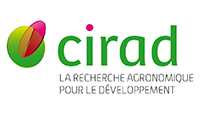Efficacy and selectivity of Sextonia rubra wood extracts and formulation in the control of Aedes aegypti strains
Résumé
Sextonia rubra is an Amazonian tree known for the larvicide activity of its wood extracts against Aedes aegypti. However, the lipophilic character of this extract presents an obstacle to the development of vector management products. The purpose of this study was to assess the feasibility, efficacy, and selectivity of a water-soluble formulation based on a S. rubra wood extract characterized by its larvicidal compounds rubrenolide and rubrynolide. Using reference and wild strains, larval mortality, oviposition behavior, hatching response, and fitness of mosquitoes exposed to the extract were evaluated. Laboratory eco- and cytotoxicity bioassays were performed concurrently. The extract showed larvicidal efficacy and no repulsive effect on oviposition, thus supporting its use in the treatment of breeding sites. The formulation exhibited strong acute toxicity, leading to 100% larval mortality in 2–4 days in either the dry or rainy season at a test dose of 102 µg/ml under semi-operational conditions, with residual activity maintained during the 5 weeks of testing. The formulation allowed for a noticeable gain in selectivity compared with the extract, with lower immobilization rates for Daphnia magna and Chironomus riparius, and no significant toxicity towards human cell lines (IC50 > 100 µg/ml). These results highlight the potential of the S. rubra-based formulation for the management of Ae. aegypti larvae, including strains showing resistance to conventional insecticides.
| Origine | Fichiers produits par l'(les) auteur(s) |
|---|
